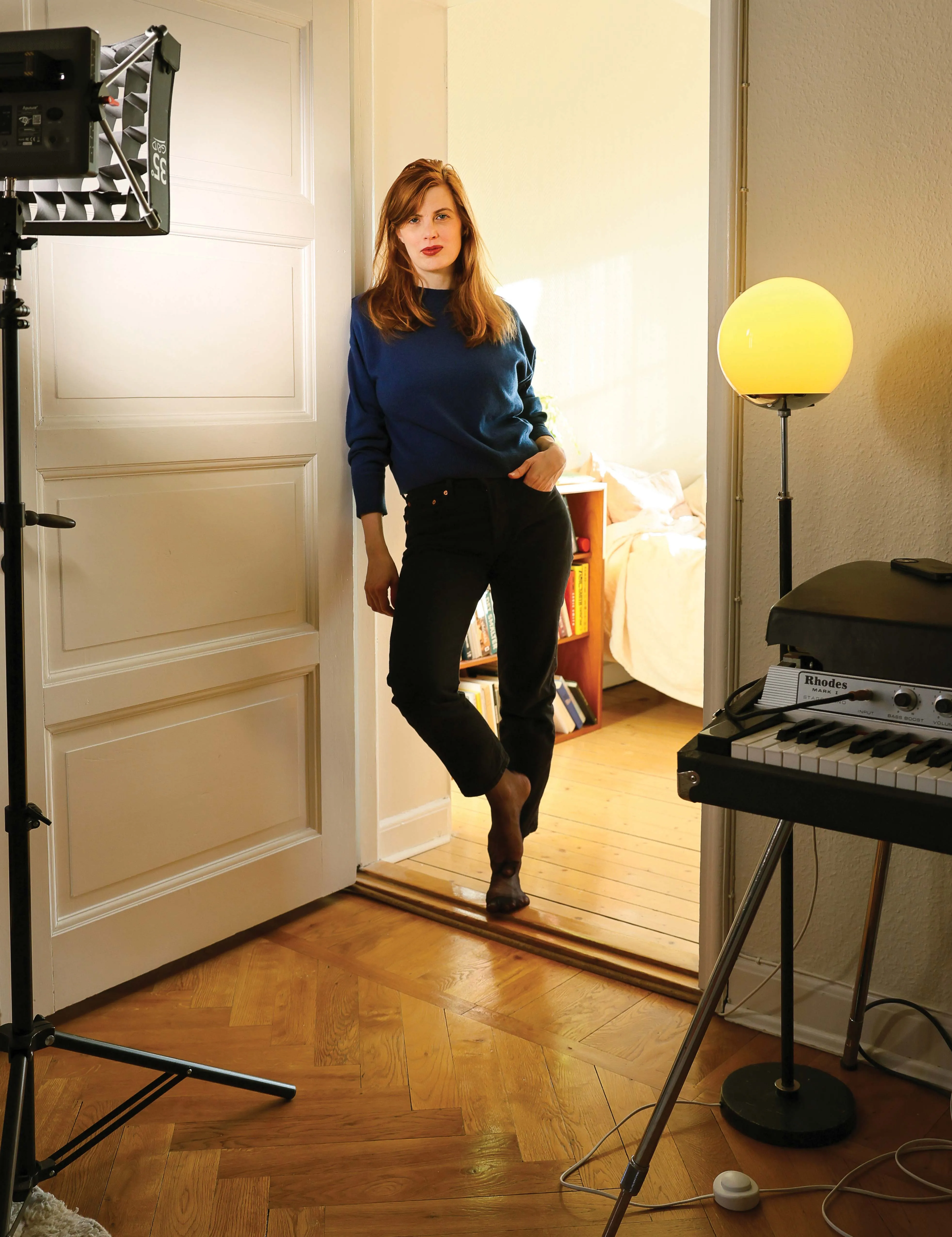F L A U N T


For ten years—the latter five of which she has been fully employed as a clinical psychologist—Swedish author, Lydia Sandgren, got out of bed at 5:30 AM every single day to write her sweepingly sparkling 600+ page debut, Collected Works.When we speak, Sandgren is in the deep cocoon of a Gothenburg winter. Your LA-based narrator bewilderedly reflects that half of said writing days would have only featured a mere five or six hours of light, shucks the realization off with shudder, then proceeds, all the more impressed and inspired by the feat.
“I think consistency is very important for the imaginative process,” Sandgren shares, when asked about days she might have felt she had nothing in the tank, but hunkered down nonetheless.“ Something always shows up, and if there’s a little thread that I can pull… I don’t know where it’s going to lead, but suddenly I can find a whole new storyline, something I didn’t expect.”
Collected Works—a family-centered story set in 1990s Gothenburg that explores the disappearance (or is it a departure?) of the wife of its protagonist, a middle-aged independent publisher, Martin—is as insatiable in its read as it is insightful to modern challenges of family, memory, and finding purpose. I explain the magazine of her featuring’s theme. Sandgren, then, considers cocoons and their connotation of rebirth as it relates to the central figures in her title, a critically-acclaimed best seller in Sweden. “They have to leave part of themselves behind—not kill it—but leave it, and mourn it, and go on with their lives,” she says of rebirth. “Martinis not growing. He is holding on in this way, and I think that kind of keeps him from actually growing, getting on with his life.”
.webp)
Rebirth invokes notions of redemption—a concept which is complexly filtered through Collected Works’ anchoring premise: staying or going. And while healing, or rebirth, may be contingent on letting go of the past, redemption, according to the author, is conversely about accepting one’s actions, not running away from one’s self. Describing the novel’s absconded wife (whose two children are left behind, along with Martin) as behaving in a sort of “anti-redemptive” way, she remarks of her protagonist’s willingness to accept responsibility for the life he’s lead.“I think it’s the story of a man who stays to take the consequences,” she says, “and to take responsibility for his actions and his choices in life, which I think we have to doin order to achieve some redemption. We can’t run away from the facts. We have to try and make good on them.”
Twice in our conversation, Sandgren remarks on the way in which one’s memory can be betrayed by this aforementioned refusal to accept change. I ask if she’d relate this to nostalgia, given so many of Martin’s memories of Cecilia paint her as this picture perfect person—nostalgia asa sort of buffer between reality’s mortality. “I think it’s a very nostalgic book,” she considers. “Maybe we can say that nostalgia is, in its most extreme form, a kind of denial of death, the ending of life? This way of relating to mortality—denying it—is present in Collected Works, like thinking,‘Well, I can always do this tomorrow. I can write this novel tomorrow. There’s always another chance, there’s always another girl, there’s always another love, another journey,’ or whatever. We don’t get endless opportunities. We can’t try forever, and sometimes we fail, and we have to face that.”
The butterfly is not born of refusal to accept its fate, after all. And the author is in agreement, “Actually accepting this quality of an ending is an important part of growing up, I think.”